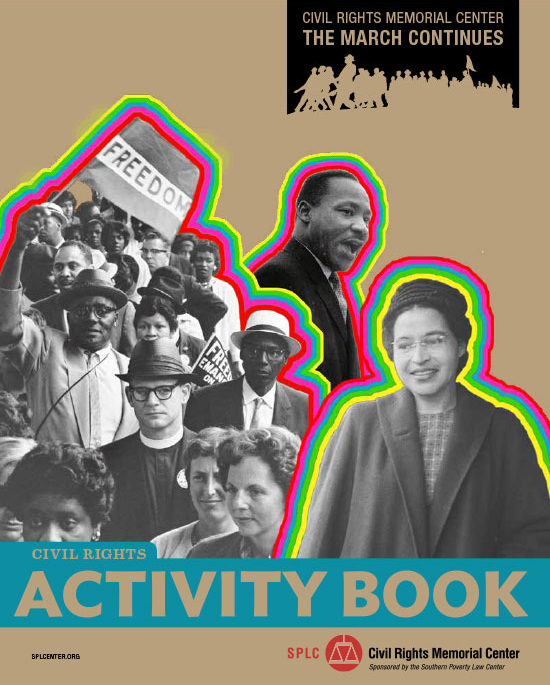Media literacy — being able to access, analyze and evaluate information for accuracy and reliability across a variety of mediums — is crucial for us to make informed decisions.
Media Literacy Now defines media literacy as “the ability to: decode media messages, including the systems in which they exist; assess the influence of those messages on our thoughts, feelings, behaviors, perceptions, beliefs, health, and on our society; and use and create media to provide information, send a message, or tell one’s own story in a way that is thoughtful, conscientious, safe, and responsible.”
Misinformation is inadvertently sharing false or inaccurate information.
Disinformation is intentionally creating and sharing false information with purpose to mislead and cause harm.
Today more than ever before, we have access to a wide range of information from a variety of media sources, most notably online digital platforms, television, radio and print materials. However, the benefits of increased exposure to information and ideas are undermined by a media landscape that is filled with polarized messaging, manipulated content, disinformation and propaganda. Rhetoric and catchphrases — especially about complex and divisive issues — are abundant and often attempt to reduce complex concerns to simplified and biased explanations.
Being discerning about the information around us is vital at all times (but especially during elections). Disinformation threatens our democratic process. Exercising critical thinking, being informed, and engaging with reliable information are important steps for resisting disinformation.
Evaluating Accuracy, Reliability and Intent
Thinking about what information is provided, the source, why a story is developed, and whose perspective is represented and whose is missing can be valuable in evaluating accuracy and reliability and in understanding the intent behind media information.
1. Be aware of your emotions, pause and think critically.
Here’s a good habit and rule of thumb: If you read a post online that enrages you to the point where you’re sending the headline to friends and family, that is the exact post that deserves to be double-checked. Take a moment and engage your critical thinking to evaluate the message, its intent, whether the source is reliable and if the information’s accurate.
2. Evaluate the information source, purpose and reliability.
Search engines, social media platforms and websites form labyrinths of information. However, not all information you find online has been vetted. If unfamiliar with a digital platform that shares an article or social media post, look for an “About Us” page on the website to consider its reputation and trustworthiness, and read more about the site from other reliable sources.
The following questions are a starting point for analyzing media information:
- What is the source of the information? Does the particular organization or person providing the information have a specific perspective or purpose?
- Is the information factual and verifiable through other journalistic and reliable sources? Here’s a list of news sources Americans trust most.
- What is the purpose of the information? Is there bias in the language and perspective? Some media pieces are opinions designed to persuade. Is the story objective journalism or an opinion piece?
- Why and how was this story developed? Whose perspective is given, and whose is missing? What does the given perspective and missing point of view reveal about the information? What questions does this raise?
The Trust Project’s 8 Trust Indicators is a downloadable resource to help people discern the difference between legitimate journalism and disinformation.
3. Fact-check information to evaluate accuracy.
Fact-checking is essential, especially during elections when candidates spend much time campaigning and speaking about their positions as well as the positions of their opponents.
- You can use a fact-checking site such as PolitiFact, FactCheck.org, AP Fact Check, Reuters Fact Check or Snopes.
- When seeking voting information, use official government election resources.
4. Recognize Artificial Intelligence (AI)-generated disinformation.
Fake or misleading posts include images as well. You can perform a reverse image search to see where this image has shown up before and if it’s been altered.
Artificial Intelligence (AI) tools can make it easy for individuals to create fake images and videos to mislead people. The Brennan Center for Justice encourages us all to take steps to recognize and resist inauthentic content designed to mislead and influence political views.
The SPLC’s article “Tips for Spotting AI-Generated Election Disinformation and Propaganda” recommends a practical series of questions to ask in analyzing digital content. These questions are useful for still images and video content.
5. Read laterally and use strategies to deepen understanding.
Lateral Reading is the practice of verifying what you are reading while you are reading it. This strategy helps to understand where information comes from and evaluate if it is reliable by reviewing it across a variety of trustworthy sources.

In a vast online landscape, headlines must grab readers’ attention, but reading beyond a headline is crucial. Even with reputable and credible sources, a headline can be misleading. Take time to read through the article instead of forming an opinion based on the headline.
Reflection and Action
Media literacy is a central skill set employed in digital citizenship. Given our constantly connected lives, the ability to recognize disinformation is essential, and so is our commitment to spread accurate information. Dialogue provides important opportunities. Speaking with others about their experiences and perspectives helps to deepen our understanding, especially as we move toward action.
1. Balance your media exposure.
- Make a list of where you get your information (news sites, blogs, TV, etc.). Review it against the media bias chart to gain insight into your news sources. Make a plan to get more balanced coverage.
- Spend time exploring how the algorithms impact your media access. Investigate sites such as YouTube and watch how your suggested videos change based on what you click on. (A formal lesson plan is also available from the Association for Media Literacy.)
2. Spread accurate information, both online and offline.
- Practice fact-checking and lateral reading. Share a how-to with friends or others in your community.
- Practice media literacy by reviewing types of media bias (e.g. opinions, flawed logic, word choice, bias by omission, and more), and then review news stories to uncover different types of media bias in action.
Understanding Media Literacy: Resources
Tips for Spotting AI-Generated Election Disinformation and Propaganda
By exercising critical thinking and using reliable sources, voters can weed out the AI-generated images and video used to disseminate election disinformation. This SPLC article provides practical recommendations for spotting manipulated content.
Preventing Youth Radicalization: Building Resilient, Inclusive Communities
SPLC and the Polarization & Extremism Research & Innovation Lab (PERIL) are committed to providing resources to the people building community resilience against extremism and for a more just and inclusive society. The resource guides on this page provide strategies to address the threat of extremism through early prevention and noncarceral solutions. This page also provides supplemental material to deepen support for educators, counselors, coaches and others who work alongside youth.
Building Resilience Against Manipulative Disinformation
This LFJ article provides recommendations for supporting young people’s mental health and well-being in addressing vulnerabilities to harmful disinformation.
Teaching Mindful Media Creation
In this LFJ webinar, with experts from Northern California public media station KQED, focuses on the role of media creation as a part of helping young people grow as learners and engage in their communities.
Teaching Mindful Media Consumption
In this LFJ webinar, experts in the field from IREX and Columbia (Missouri) Public Schools introduce media literacy concepts and how they can be used to resist manipulative information. In addition, the webinar highlights real-world implementation models and resources.
Against Hate: Media Literacy and Other Tools for Combating Extremism
This webinar from LFJ, the SPLC's Intelligence Project and Retro Report provides tools for responding to hate and antisemitism and developing media literacy. Learn about the ways hate has shown up in schools and communities, past and present, and explore the connections between media literacy and combating hate and bias.
The Mind Online podcast series
Through conversations with teachers, librarians, scholars and reporters, this podcast series explores the critical aspects of digital literacy that shape how we create and consume content online.
Prevention and Resilience: Supporting Young People Through Polarizing Times
During this time of political and social turmoil, build networks of trusted adults to help young people understand, contextualize and counter manipulative and harmful information.
Whole-of-Community Resilience
This article contends that helping young people build resilience against manipulative extremist narratives and conspiracy theories requires all adults in a young person’s trusted network to be equipped with the skills and knowledge to intervene.
Combating Online Youth Radicalization
This webinar from LFJ, SPLC’s Intelligence Project and American University’s Polarization & Extremism Research & Innovation Lab (PERIL) presents tools for combating the radicalization of young people online. Learn about the relationship between digital literacy and radicalization, become familiar with warning signs, and examine the ways online hate affects targeted groups. In addition to directly addressing the impact of the COVID-19 pandemic on radicalization efforts, the webinar will cover tools for intervening with vulnerable students and responding when incidents occur.
Reimagining Digital Literacy Education To Save Ourselves
This LFJ article examines how misinformation and online hate are crisis-level threats to democracy and liberation movements. Digital literacy education must be among the solutions.
Learning the Landscape of Digital Literacy
Digital literacy is more than the ability to identify misinformation or avoid bad guys online; it means being able to participate meaningfully in online communities, interpret the changing digital landscape and unlock the power of the internet for good. Digital literacy, in the modern United States, is fundamental to civic literacy. This comprehensive guide provides tools and resources for learning and teaching about the landscape of digital literacy.
Digital Literacy Framework
The LFJ Digital Literacy Framework offers seven key areas in which students need support developing digital and civic literacy skills. The numbered items in each box represent the overarching knowledge and skills that make up the framework. The bullets represent more granular examples of student behaviors to help educators evaluate mastery.
